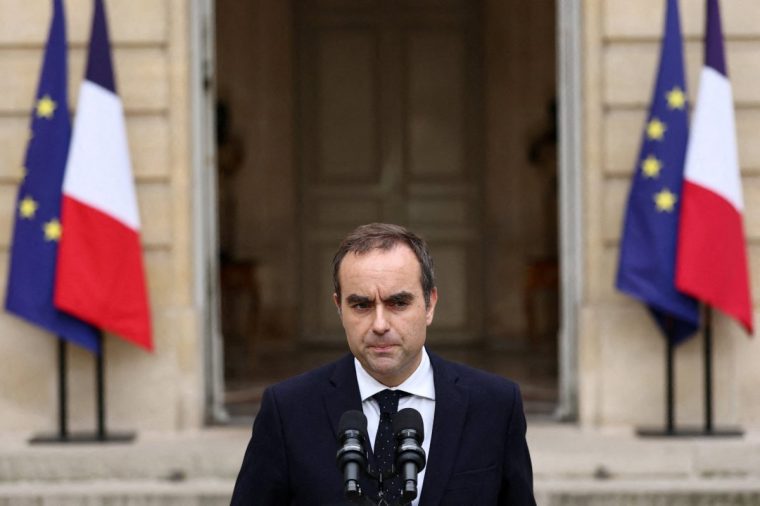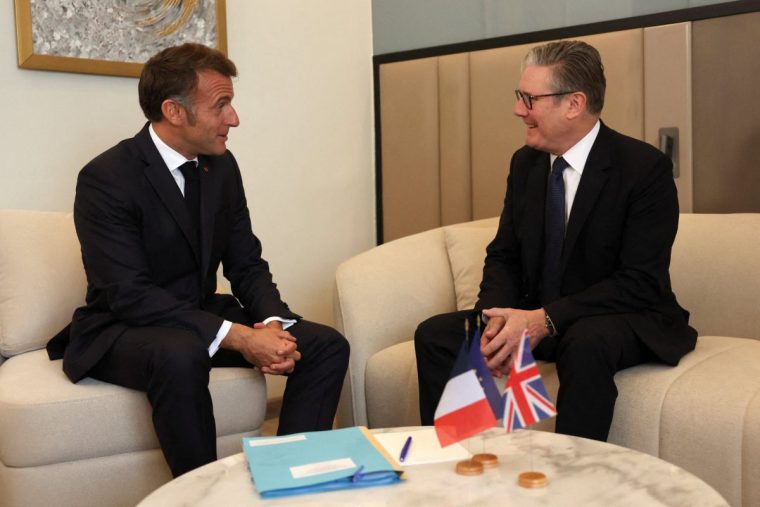The French President’s political demise is a matter of time, and his predicament is strangely mirrored across the Channel
Emmanuel Macron has long revelled in crisis. From the gilets jaunes to the war in Ukraine, the French President has often appeared most energised when his back is against the wall. Yet after the narrow survival this week of his latest Prime Minister, Sébastien Lecornu, in two no-confidence votes, Macron himself looks diminished – not toppled but politically spent.
Lecornu’s government squeaked through only because it froze Macron’s signature pension reform, a measure forced into law in 2023 through a controversial bypass of the National Assembly, provoking some of the largest street protests in decades. The Socialist Party (PS) agreed, reluctantly, to keep the 39-year-old Premier in office after he suspended the plan to raise the retirement age from 62 to 64 until after 2027. Eighteen votes were all that separated him from becoming Macron’s third fallen PM in a year.
The reprieve offers momentary stability amid the political chaos. Markets calmed; France’s bond yields fell. Macron, liberated from the daily trench warfare of domestic politics, has space to turn back to what he prefers – foreign policy. His advisers speak of a President once again “free to think globally”: shuttling between Kyiv, London, Washington and Brussels, rebuilding France’s diplomatic standing and reasserting his vision of European sovereignty.
For allies abroad, from Downing Street to the Elysée’s eastern flank, it is a relief. A distracted France, after all, weakens Europe’s already fragile front against both Vladimir Putin’s belligerent Russia and Donald Trump’s increasingly hostile US.

Yet at home, Macron presides over a system paralysed. His centrist bloc has been reduced to a brittle minority, trapped between Marine Le Pen’s far right and Jean-Luc Mélenchon’s radical left. The National Assembly has become a graveyard for budgets, reforms and careers. Lecornu’s two predecessors – François Bayrou and Michel Barnier – were each brought down by the same arithmetic. Even Lecornu’s narrow survival merely postpones the inevitable: another budget battle, another cliff-edge vote.
The crisis is not only institutional but personal. Macron’s governing style – the Jupiterian aloofness, the top-down decrees, the disdain for intermediaries – has left him with few allies and fewer ideas. His rash decision last year to call a snap election destroyed what remained of his majority and unleashed the very instability the Fifth Republic was designed to prevent. While he seized the presidency in 2017 as a fresh figure who promised to transcend left-right divides through reasonable centrism, almost four out of five French voters now disapprove of him. For many French, the Macron experiment has curdled into exhaustion.

His predicament is strangely mirrored across the Channel. Like Keir Starmer, Macron is a centrist who did not rise through a party machine, who built his brand on competence and moderation rather than passion. Both men are seen as solid on the international stage – pragmatic Europeans who speak the language of allies and investors – but domestically, each has struggled to inspire. Starmer’s Britain feels stuck in grey managerialism; Macron’s France in permanent gridlock.
The contrast is most striking in their governing fortunes. Starmer enjoys a solid parliamentary majority yet faces a restless electorate already tiring of him; Macron commands a restless parliament and an electorate long since tired. The two leaders are technocratic mirror images in an age that seems to crave conviction.
For Macron, the danger is deeper. His second and final term ends in 2027, and with every passing week, he drifts further into lame-duck territory. His authority erodes not through scandal or rebellion but through sheer fatigue. France’s business community already speaks of “betrayal” over Lecornu’s tax rises; his centrist MPs mutter of an “after-Macron” landscape taking shape.
The phrase – après moi, le deluge – attributed to Louis XV, feels newly apt. Macron has survived yet another storm, but at the cost of draining what remains of his political capital. France has a government, for now. Europe still has its self-appointed visionary. But the sense lingers that the Fifth Republic, and perhaps Macronism itself, is running on fumes – a presidency that can still talk about the future abroad but no longer command it at home.
